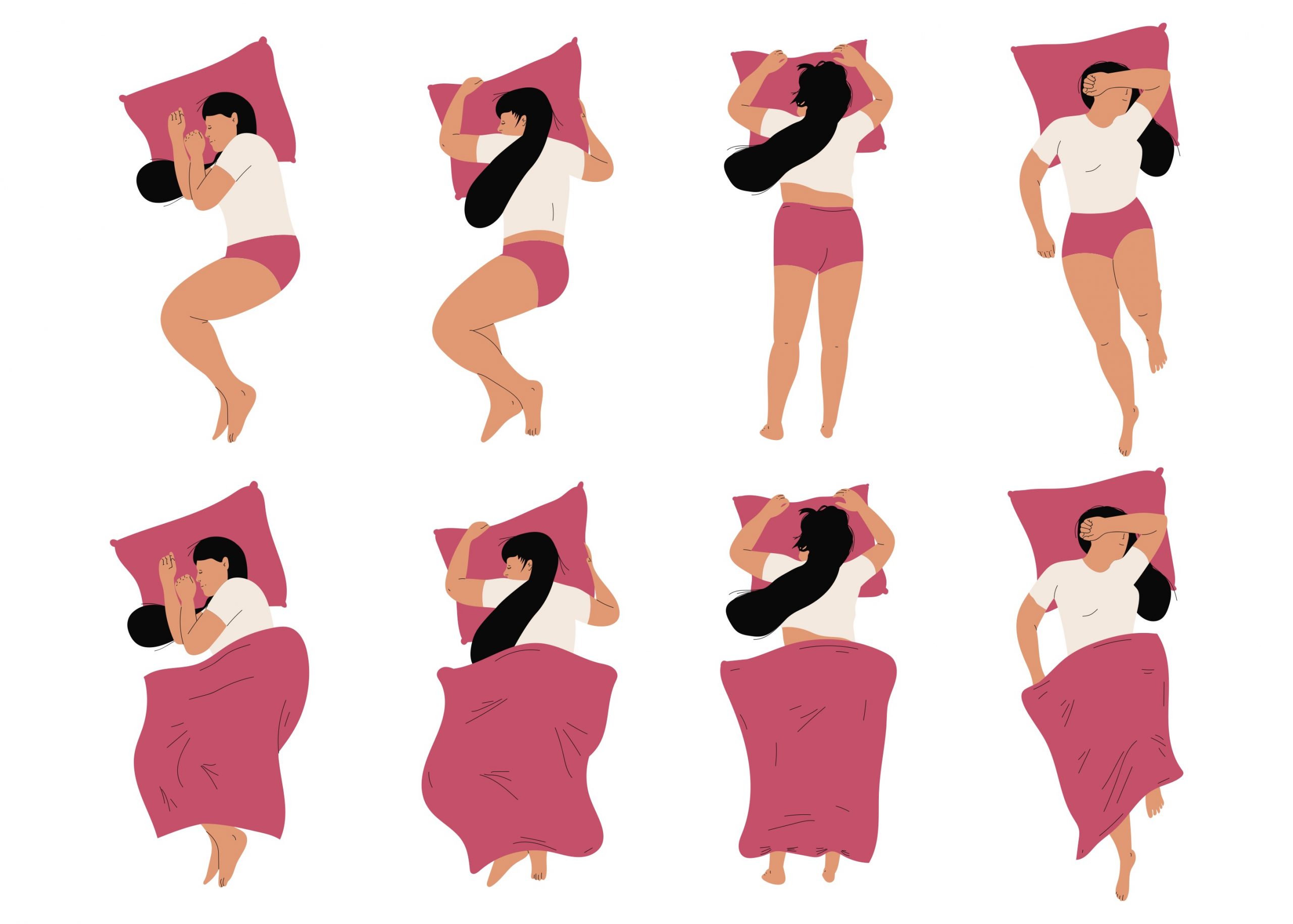What causes night sweats for women - as well as the menopause?
We're all used to perspiring a little more in the warm weather, or getting drenched in sweat during a workout - but what about night sweats?

If you've ever woken up in the middle of the night, with you and your covers soaked to the bone, you've experienced night sweats. And they are fairly common. In fact, in a US study of 2,267 people who visited doctors, 41% said they experience night sweats.
Sometimes, they are nothing to worry about, and can be solved through simple adjustments or treatments. But a lot of the time, seriously excessive sweating at nighttime can have some worrying causes. So what might cause night sweats in women?
See below for the following night sweats causes...
Causes of night sweats in women
1. Night sweats during the menopause
Hormonal shifts within your body, such as those thatoccur during the menopause, or during the perimenopause, can often trigger hot flushes and night sweats.
Vicki Whiteley, Director of Aesthetics at The Whiteley Clinic explained, “Most women will experience hot flushes when going through the menopause. They're often described as a sudden feeling of overwhelming heat that seems to come from nowhere and spreads throughout the body."
And they often happen due to dropping levels of estrogen. Dr Shahzadi Harper, GP and menopause specialist at zoomclinic.co.uk, also revealed exactly why night sweats might happen during the menopause. She told w&h, "Women commonly get night sweats during perimenopause. Not all women suffer, but three out of four women do. Its due to fluctuating and declining hormonal levels. A woman’s ovaries produce less estrogen, progesterone, and testosterone, and menstrual periods become irregular.
Sign up to our free daily email for the latest royal and entertainment news, interesting opinion, expert advice on styling and beauty trends, and no-nonsense guides to the health and wellness questions you want answered.
"It is particularly the led lining and fluctuating levels of the hormone oestrogen which is responsible for night sweats."
MORE:Menopause magnets: what are they and do they really help ease menopause symptoms?
Vicki said, "One way to keep your body as cool as possible during the menopause is to wear clothing made of natural fabrics that will allow the skin to breath, such as lightweight cotton or linen. People who dress inappropriately with very warm clothes in conditions where they are not needed can cause themselves to sweat excessively, as the body’s eccrine sweat glands are forced to produce sweat to cool the body down. Losing unnecessary clothing layers will instantly reduce your sweat production and keep you feeling cool."
Some women have had success in easing menopause symptoms with menopause supplements or menopause magnets - though it's worth nothing that these solutions have also been unsuccessful for many others. It's a case of working out what's right for you.
2. Certain medications
Some medications can also prompt night sweats in women. Frequently, antidepressants can trigger night sweats, as can, ironically, medication you might take to lower a fever - such as aspirin. Some drugs used to treat diabetes can also contribute.
To make things even trickier for menopausal women, it's also thought that some hormone therapy medications could also be a cause of night sweats, so if you're suffering with them whilst going through the menopause, it might help to reconsider whether they are right for you.
3. Some infections
Sometimes night sweats can be an indication of something more serious going on in your body. It's thought that more worrying infections, such as tuberculosis, endocarditis (inflammation of the heart valves), abscesses in any part of your body, or a HIV infection could also trigger night sweats.
MORE:Lightweight summer sleepwear that’s also great for menopausal women
If you suspect any of these it is important to see a doctor as soon as possible.
4. Anxiety
People who experience anxiety or anxiety disorders might also experience night sweats. Anxiety can easily manifest itself in physical symptoms, which can often include sweating. And if you experience these symptoms during the day, they can often come out at nighttime too while sleeping.
5. More serious illnesses such as cancer
In rarer circumstances, night sweats can be a symptom of some cancers.
Sometimes, night sweats accompanied by things like unexplained weight loss can be a sign of cancer such as lymphoma. If you have night sweats alongside other worrying symptoms such as localised pain or a temperature, it is important to get them checked out with a doctor.
6. Hyperhidrosis
Hyperhidrosis is a condition in which you sweat excessively for no obvious reason. It is not necessarily related to increased heat outside or more physical activity, and can cause night sweats. The NHS note that excessive sweating can happen as a result of "another condition you may have ,or as a side effect of medication you're taking."
7. Lifestyle factors such as increased alcohol consumption
Drinking more in one day can contribute to increased and excessive sweating at night. However, it can also occur if you are drinking to excess too, as sudden withdrawal from alcohol can sometimes result in night sweats.
MORE:10 causes of hot flushes that have nothing to do with the menopause
Other lifestyle choices could also cause women to sweat more at night. For example, if you eat a lot of spicy food, drink a lot of caffeine, or wear thicker or non-breathable pyjamas, you may be more prone to night sweats. If you find yourself struggling and have ruled out any other causes, it might be worth adjusting these or avoiding certain triggers for a while to see if it helps.
When you should seek medical help for night sweats
Night sweats might not need treatment if you can easily pinpoint the cause, but if you are unsure why you are excessively sweating at night, it might be a good idea to seek the advice of a GP.
The NHS advises seeing a doctor if you are having night sweats if:
- you have night sweats and are losing weight for no reason
- you are having night sweats regularly
- you are simply worried about your night sweats
- have night sweats and also a very high temperature, a cough, or diarrhoea
- they interrupt your sleep
- they come on years after you have been through the menopause
How to stop night sweats
Dr Shahzadi advises that you can help ease night sweats with some simple methods.
"Avoid triggers such as alcohol, caffeine and spicy food especially near bed time. Or, try some meditation. And keep a fan nearby and a cool glass of water. For the menopause, HRT which helps to replenish the oestrogen loss, does ease the night sweats significantly."
If persistent night sweats are bothering you - you can also try these natural tips and remedies:
- Wear lightweight sleepwear, that will keep you cool during hot flushes
- Keep the room temperature low and let in some air throughout the night if possible
- Take a cool shower before bed
- Run cool water over the wrists before bed
- Maintain a healthy weight
- Destress before going to bed
Amy Hunt is an experienced digital journalist specialising in homes, interiors and hobbies. She began her career working as the features assistant at woman&home magazine, before moving over to the digital side of the brand where she eventually became the Lifestyle Editor up until January 2022. Amy won the Digital Journalist of the Year award at the AOP Awards in 2019 for her work on womanandhome.com.

